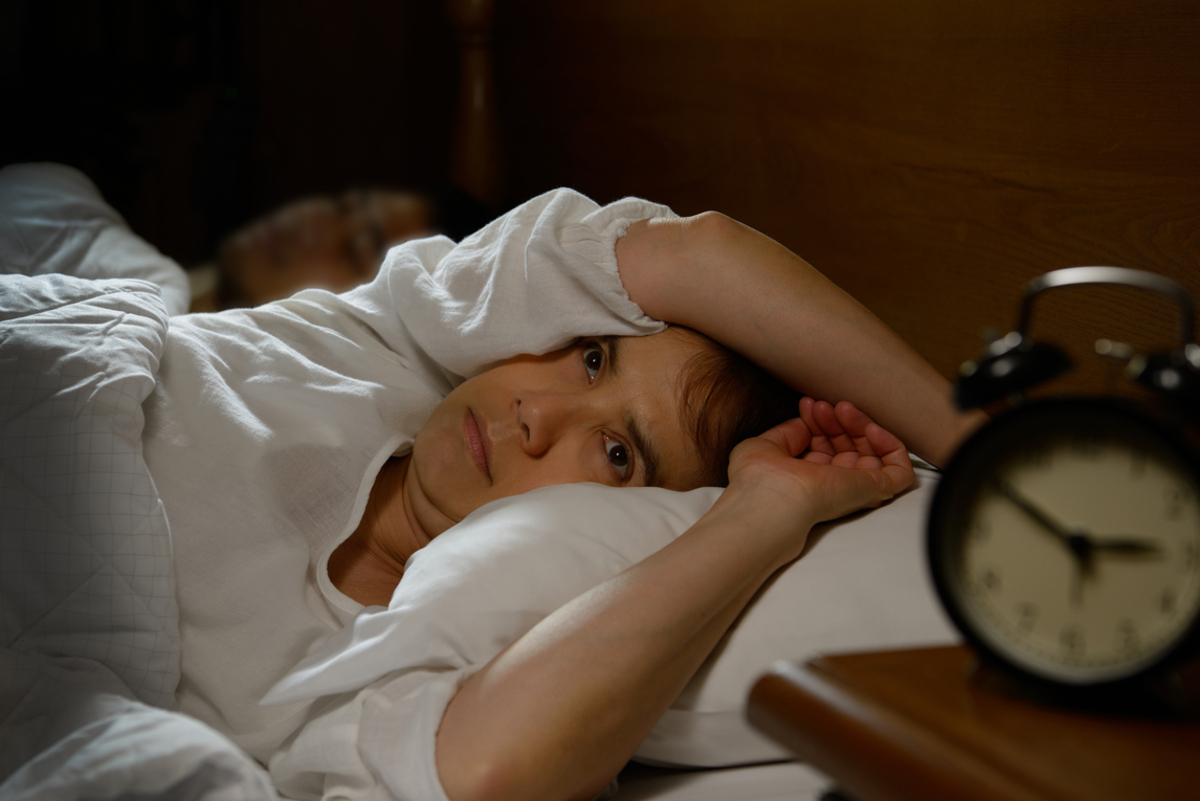Many people living with HIV complain of occasional night sweats disrupting their normal sleeping cycle and causing them frustration. The phenomenon can be related to the disease itself or numerous other conditions that may require medical attention. Nevertheless, we have put together a few methods that can reduce the burden of this condition.

First of all, what are night sweats?
Night sweats are episodes of excessive perspiration that happen during sleep, without any relation to a hot sleeping environment. Night sweats differ from the normal perspiration that can strike on a hot summer day or when excessive bed sheets and covers are used. The condition usually leads to drenched pajamas and soaked bedsheets that require changing, and can awaken patients repetitively during the night, often resulting in unhealthy sleeping patterns.
What are the causes of night sweats?
Various medications, infections, and hormonal disorders can cause this phenomenon. For example, in women, night sweats are the most frequent symptom that can herald menopause. Other hormonal causes of the condition include diabetes, hyperthyroidism, puberty, and pregnancy. In addition to hormonal causes, some cancers, especially lymphoma and leukemia, can also cause a person to sweat excessively at night.
Night sweats can happen early in the course of an HIV infection, within two to four weeks, during acute seroconversion when the body is actively trying to defend itself against the invading virus. During this period, the exaggerated immune response can lead to generalized fatigue, headaches, muscle aches, joint pain, fever, and night sweats. The symptoms are usually brief and resolve spontaneously within one or two weeks.
People living with HIV may also have night sweats later on in life if they are not receiving the proper treatment. Weakened immunity and a CD4 count below 200 can put the person at risk of infection with different organisms that can cause the condition, such as tuberculosis, cytomegalovirus, and mycobacterium avium complex. Treatment with HAART has significantly improved immunity in HIV patients and reduced such infections.
How can we deal with night sweats?
While night sweats are not directly harmful, they can interfere with normal sleep and be very uncomfortable for patients. If night sweats just started plaguing you recently, you should follow up with your physician for a full assessment, especially if other symptoms like fever, chills, or weight loss are present. The first and best method to deal with night sweats is to treat the cause.
However, here are a few helpful tips that can make life easier until treatment takes effect:
- Adjust your sleeping environment. You can start simple. Try sleeping in a room that is properly cooled with a fan or an air conditioner. This can make a huge difference and can help your body cool down without releasing excessive amounts of sweat.
- Get more suitable sheets. Check the quality and thickness of your current sheets. If they are made of non-breathable thick cloth, you should consider changing them altogether. While sleeping, try to reduce the number of sheet covers to a minimum to avoid trapping heat.
- Get more convenient clothes. Avoid wearing pajamas that are non-breathable or are too tight. You can even try sleeping naked if you are comfortable with it.
- Adjust your diet. Try cutting down on alcohol, and maybe avoiding it completely near bedtime as it increases body temperature and causes flushing. Spicy foods may also trigger sweating, so avoiding these as well would be a smart thing to do.
- Avoid smoking and exercise near bedtime. Working out during the day instead will help reduce stress and improve your sleep quality.
- Reduce your stress to improve sleep quality. This can be achieved through regular exercise, yoga, music or any other mental relaxing techniques.
- Some over-the-counter medications, such as ibuprofen, may help improve the symptoms. Sleep medications, on the other hand, would not reduce night sweats but can help you sleep through them.
- If nothing is working and you wake up in the middle of the night drenched in sweat, change the sheets and maybe try taking a cool shower. Drink some cool water, remove some layers of cloths, and try to relax your mind before attempting to sleep again.
Night sweats can emerge as a manifestation of many conditions, mainly hormonal imbalances, certain medications, and some febrile infections. In persons living with HIV, this can happen early or late in the course of the disease, especially in those not receiving proper treatment.


Your thoughts on this